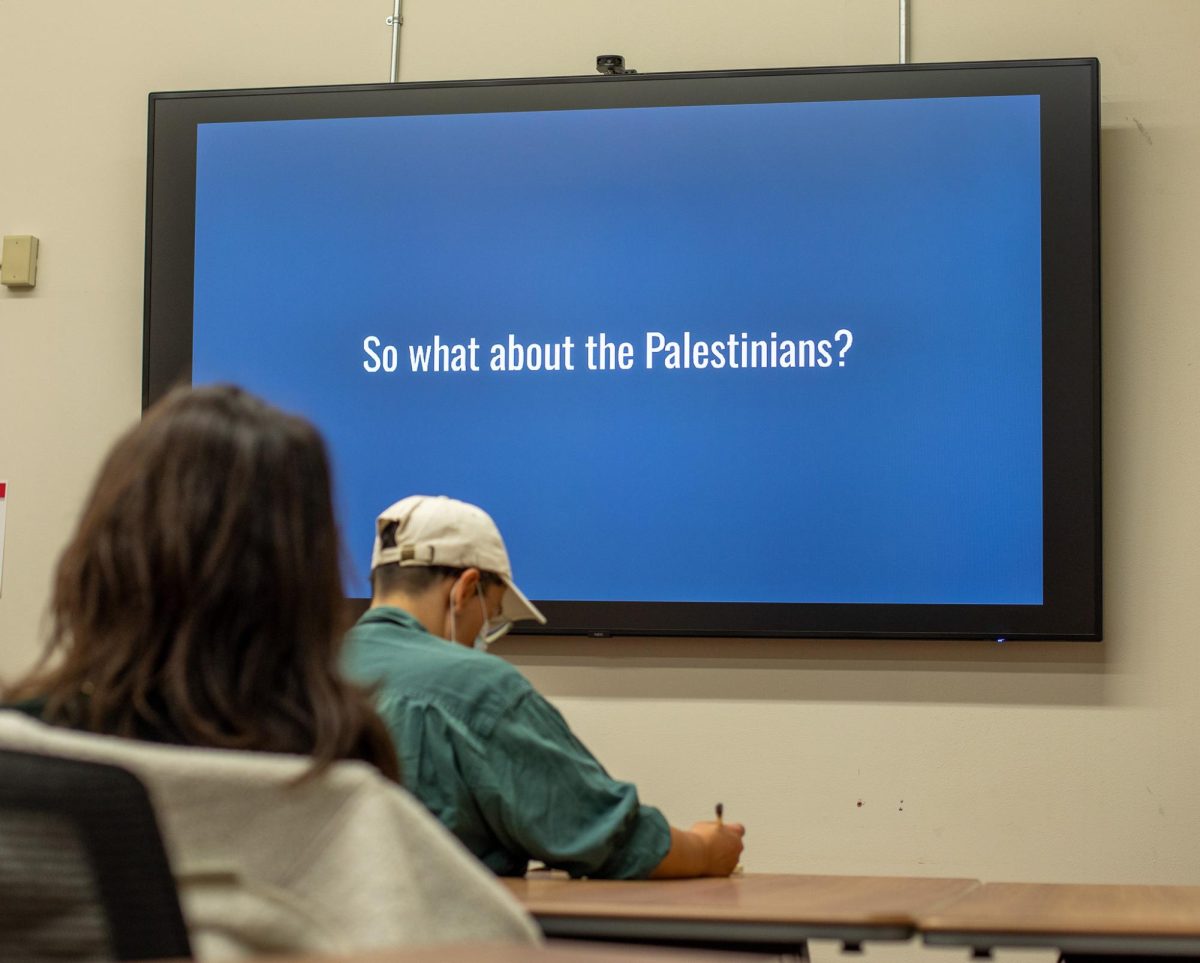UW’s Students for Justice in Palestine held a teach-in Tuesday as part of the organization’s “Week of Rage.”
The teach-in explored historical examples of resistance against colonial oppression.
The event aimed to provide attendees with a deeper understanding of the nuances and justifications behind various forms of resistance, according to the organizers.
Dr. Sasha Suarez, assistant professor in the university’s history department, delivered a presentation drawing parallels between the struggles and triumphs of the Shawnee, Apache and Dakota nations against the United States and the current situation in the Middle East.
She highlighted resistance movements such as the Dakota War of 1862.
Indigenous leaders, such as Shawnee chief and warrior Tecumseh, would’ve never thought of themselves or the lands as being American, but history classes position him as a noble leader the U.S. claims as part of its history, Suarez said.
The group compared the reservation system Americans imposed on Indigenous people to the experiences of Palestinians today, with one student noting the parallels in the inability to move freely and the authority of those in power to determine who can exist in spaces outside of containment.
One SJP student leader presented information about historical uprisings, including enslaved peoples’ rebellions throughout the U.S. and Caribbean, Irish nationalist resistance, Jewish resistance to the Nazi regime in Warsaw ghettos, the Black Panthers and Black Liberation Army and the Algerian Revolution.
In a group discussion, members rejected respectability politics and the common narrative that Hamas wouldn’t have carried out the Oct. 7 attack if they cared about Palestinians, calling it victim blaming.
“They all knew what they were bringing themselves into and they did it anyway, not because it’s moral, not because it’s pragmatic, not because they knew they were going to win, but because it is a natural instinct when you are being oppressed to resist, to rebel,” an SJP leader said. “It’s such an insidious and punitive ideology.”
The presenters ensured the death tolls on both sides were included in each historical example.
“It’s a precipitation of decades or even centuries, of violence and brutal occupation, assimilation, ecocide, ethnic cleansing … everything that encompasses the colonial projects that have made the world what it is today,” the SJP leader said.
The conversation also looked at the continued victimization of liberated groups, such as Haiti being forced to pay reparations to France even after gaining independence, according to the SJP leader.
As the discussion concluded, participants emphasized the importance of mutual aid, art and strategic resistance tactics in the face of oppression, underscoring the moral obligation to stand in solidarity with those fighting for their freedom.



